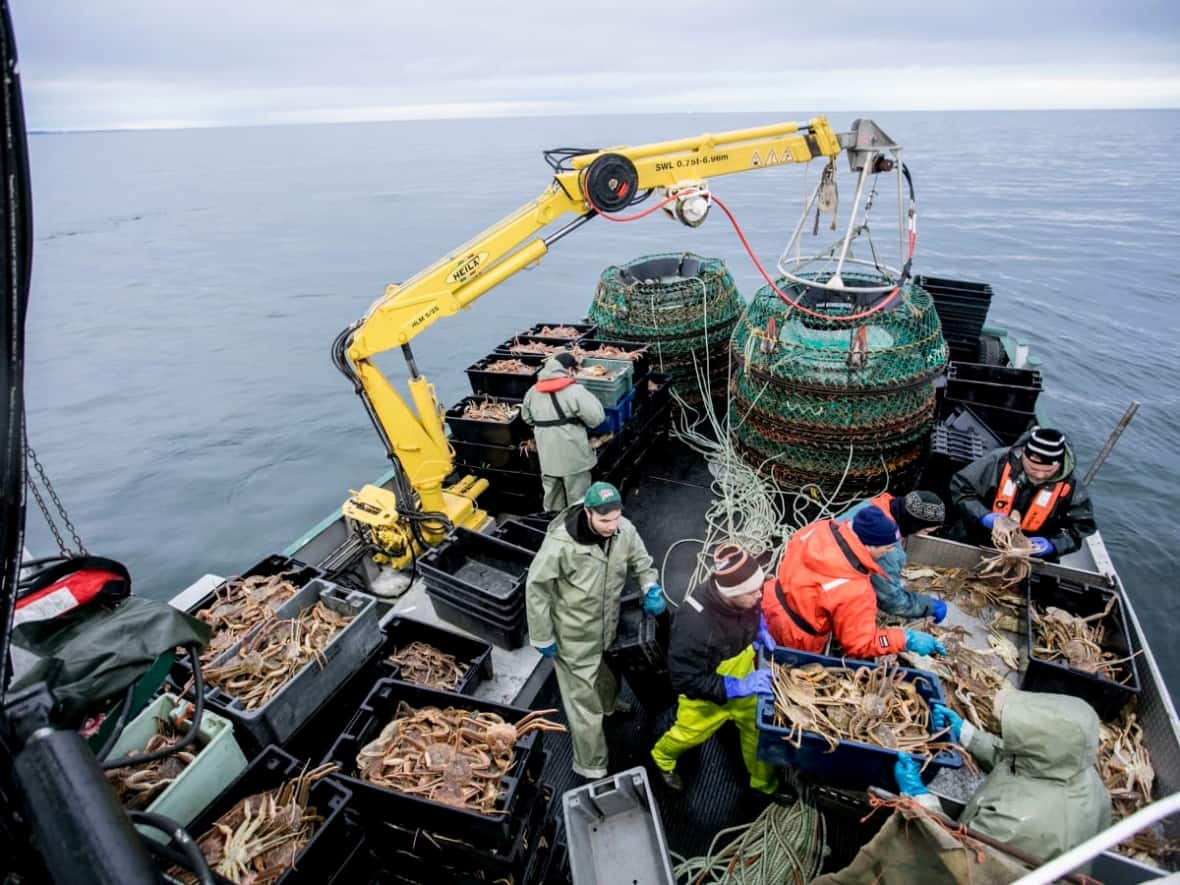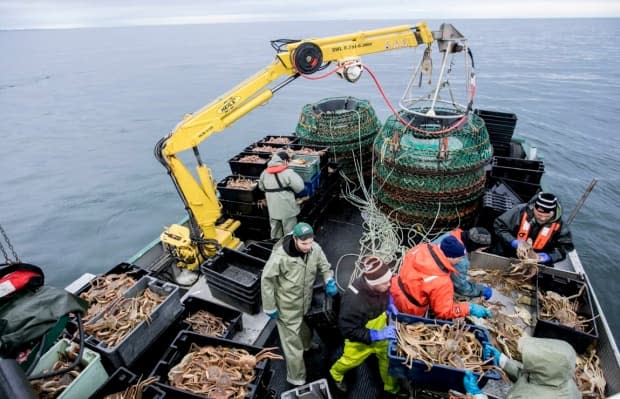Tentative deal reached that could see snow crab harvesters back on the water


The Fish, Food & Allied Workers union has reached a tentative deal that could see snow crab harvesters back on the water in short order.
Union president Greg Pretty told CBC News shortly after 6 p.m. Friday that details of the deal will be sent to union members before being ratified.
"It's been a really good day," Pretty said.
The FFAW and the Association of Seafood Producers (ASP) have been stuck in a stalemate for weeks over the $2.20 per pound price set by the provincial price setting panel in early April. The industry is worth about $756 million.
Many harvesters have said the $2.20 price wouldn't make for a viable season after two years that saw prices over $7 per pound and the rising cost of fuel and other supplies.
However, $2.20 per pound will still be the price for the catch but will remain in place for the entire season, not just for the three-week window offered by the ASP before it sought a price reconsideration from the price setting panel.
"That is a significant move and it gives us a lot of latitude to have a fishery," Pretty said.
Furthermore the union has the right for a price reconsideration if the market does increase.
"If in fact we get a green light tomorrow from our crab fleet, we can get up and going relatively shortly," Pretty said.
Having crab boats back on the water isn't only a relief for harvesters.
Twenty-two processing plants across Newfoundland and Labrador are eagerly awaiting the catch so that the roughly 5,000 plant workers can get back on the job.
"We've gone through a very tough month and there's some light at the end of the tunnel," Pretty said.
"I'll leave it to the harvesters to make that decision and I know they'll make it in good faith."


